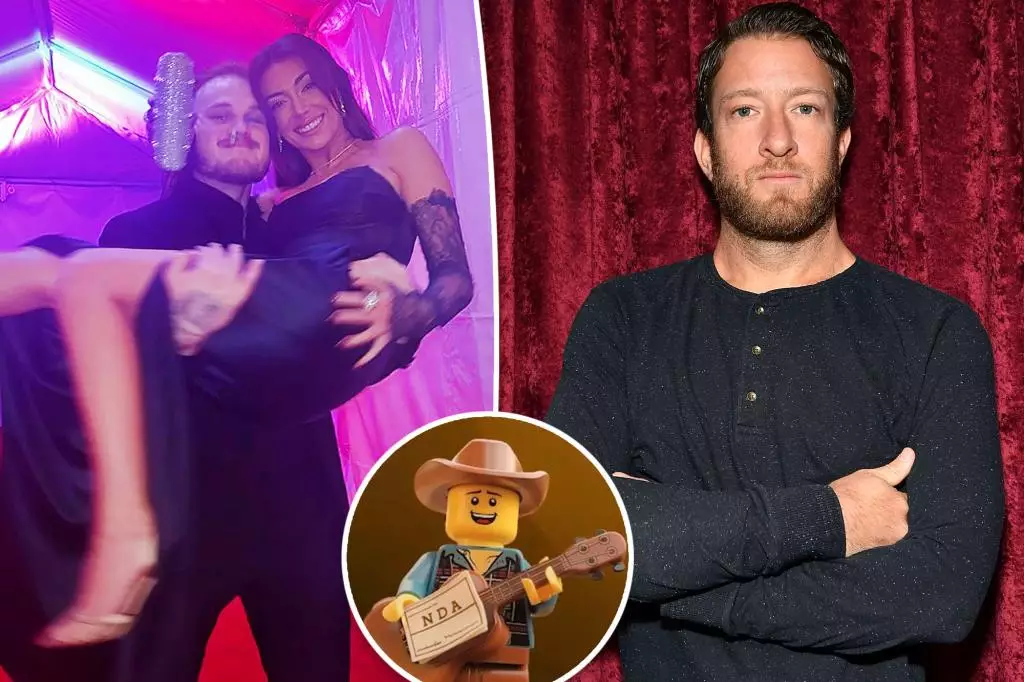The recent wave of diss tracks has taken the music scene by storm, but few have garnered as much attention as Dave Portnoy’s latest attack on country singer Zach Bryan. This musical showdown, fueled by personal beef and social media commentary, highlights the intersection of celebrity culture, music, and public spectacle in contemporary America.
At the center of this drama is Portnoy, the founder of Barstool Sports, who has carved a niche not only in sports commentary but also in viral entertainment. His latest track, “Country Diddy,” manifests his disdain for Bryan, who is notably known for his poignant lyrics and a burgeoning career in country music. The title itself draws a parallel between Bryan and Sean “Diddy” Combs, amplifying the theme of duality between musical genres and public personas. Bryan faces serious allegations in his personal life, and Portnoy’s lyrics seem to leverage that tumult to escalate their rivalry.
Portnoy’s lines expose an unabashedly critical viewpoint on Bryan’s alleged attempts to suppress his narrative, illustrating the lengths to which public figures may go to maintain their image. As Portnoy boldly states he does not care about the legal pressures Bryan purportedly exerted on him, it reveals a defiance that’s emblematic of the “cancel culture” churning through the entertainment industry.
Analyzing the lyrics of “Country Diddy,” there is a clear interplay between wit and vitriol. The musician accuses Bryan of “stealing stories,” implying a sense of inauthenticity reflective of broader concerns in the music industry regarding originality and representation. This commentary transcends mere slander; it challenges the culture of narrative ownership in artistic expressions.
Another noteworthy line derides Bryan’s purported attempts to silence his ex-girlfriend, Brianna “Chickenfry” LaPaglia, a compelling element that enriches the narrative context. Such lyrics not only aim to discredit Bryan but also signal a pushback against the systemic silencing of women’s voices in the entertainment world. Portnoy’s use of humor, such as introducing a Lego character in his music video, attempts to trivialize the seriousness of the allegations while creatively portraying his criticism. However, there is an underlying question of whether this comic relief detracts from the weight of the issues he raises or if it serves to underscore the absurdity surrounding celebrity disputes.
Portnoy’s diss track has struck a nerve, especially given LaPaglia’s comments that the track was “lethal.” Her support for Portnoy highlights an alignment against Bryan, who now finds himself in a precarious public relations bind. LaPaglia’s allegations about Bryan’s treatment of previous partners amplify the seriousness of the narrative, suggesting a pattern of manipulation that transcends their personal relationship.
Despite the firestorm, Bryan has remained mostly silent, which invites speculation about his next steps. In the world of diss tracks, a silence can be just as telling as a rebuttal. The lack of an immediate response from Bryan could suggest a strategic retreat or an acknowledgment of the potency of Portnoy’s words.
The discourse engendered by Portnoy’s diss tracks sheds light on broader cultural dynamics surrounding celebrity and male accountability. With Portnoy’s vow to continue producing diss tracks, the question looms: will this linger into an ongoing feud reflective of hip-hop’s longstanding tradition of rivalries, or will it dissipate as quickly as it flared?
As audiences consume these narratives, it’s essential to remain critical—not just of the artists involved but also of the societal structures that allow for such spectacles. In an age where social media amplifies every misstep, the release of diss tracks like “Country Diddy” provides not just entertainment, but also a mirror reflecting the ongoing complexities of gender, power, and authenticity in contemporary culture. The saga of Dave Portnoy, Zach Bryan, and Brianna LaPaglia is far from over, and it invites continuous examination of how personal grievances morph into public performances.


Leave a Reply